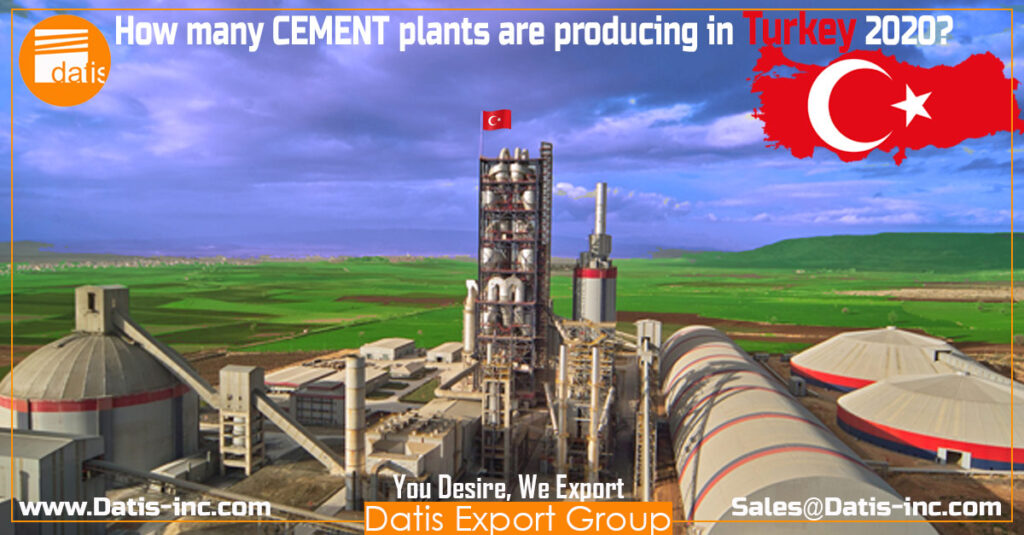Cement Industry in Turkey
Economic slump hits cement hard
The Cement Sector in Turkey, which is the largest producer of Europe, after its nearly three-year continuous growth has entered a downward trend in consequence of the negative developments in the Turkish economy since August 2018. In addition to the slowdown in construction works in recent years, the adverse economic conditions encountered in Turkey reduced the demand for cement, as it has been case for many domestic products.
As a result of the decreasing demand for cement, the total production in the sector, which shrank by 9.9% in 2018 compared to the previous year, continued to contract and shrank by 21.4% in 2019. Due to the overall contraction in the sector, the capacity utilization ratio of the producers dropped to 50% in 2019.
Housing, infrastructure down-turns affect sales
In addition to the stagnation in housing market, the slowdown in infrastructure projects also caused a decrease in the demand for cement in the domestic market over the last one and a half year. The contraction of 10.8% in total sales in 2018 increased to 29.5% at the end of 2019. While the total domestic market sales of the sector were 72.2 million tons in 2017, it decreased to 45.4 million tons in 2019 and the contraction in the domestic market between these two periods had been 37.1%.
After the increase in demand in the construction sector following the decrease in market rates, an improvement in the cement sales in the domestic market had been expected across the sector. However, the high level of housing stock in the construction sector has suppressed the implementation of new projects, as a result, the contraction in the domestic market continued until the end of 2019.
Exports become the salvation
Due to the shrinkage in the domestic market, cement producers of Turkey attached more importance to foreign markets and concentrated further on their export-oriented activities. The exports of the cement sector, which was 7.5 million tons in 2018, increased by 48.0% in 2019 to 11.1 million tons. The export revenue of the sector from cement and clinker, which was 234.1 million USD in 2018, reached 380.5 million USD with an increase of 62.5% in 2019.
While the African countries such as Cameroon, Gana and the Ivory Coasts have been the countries where the sector’s exports were most developed, the USA and Israel markets maintained their position of being the most important markets for the sector. The increase in the export income of the sector continued in the first two months of 2020, and an increase of 42.0% was achieved in export revenues compared to the same period of the previous year.
Despite the contraction in the domestic market, the improvement in exports supported the increase in the overall cement production in the last two months of 2019. Although the production growth of the sector continued in the first two months of 2020, the Covid-19 pandemic experienced worldwide has affected the cement sector negatively as well as many other sectors. While the pandemic adversely affects the industry, both in the domestic market and in the foreign markets, the uncertainty about the duration of this pandemic is also one of the most important problems of the sector.
Export Volume- Turkey is the 2nd Cement Exporter in the world
The total export volume of Turkish clinker and cement increased by 68% in 2019 to 23 million tonnes.
The total export value of the Turkish cement sector increased by 44% year on year to US$877m.
Dr. Tamer Saka, who has been re-elected as chairman of the Turkish Cement Manufacturers’ Association (TÇMB), said that the Turkish cement sector is the leader in Europe in terms of cement production and is the second biggest cement exporter in the world.
Saka, who has been chairman of the TÇMB board since July 2019, said after his re-election that Turkey exports cement to more than 100 countries, with the most important markets being the USA, Israel, Ghana and Ivory Coast.
In January 2020 cement exports totalled 1.1 million tonnes, while clinker exports were 1.3 million tonnes.
“Our forecast is that the Turkish cement sector will grow by approximately 2% in domestic sales and 15% in exports this year,” Saka added.
